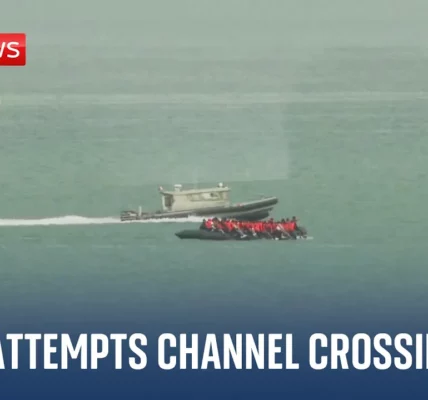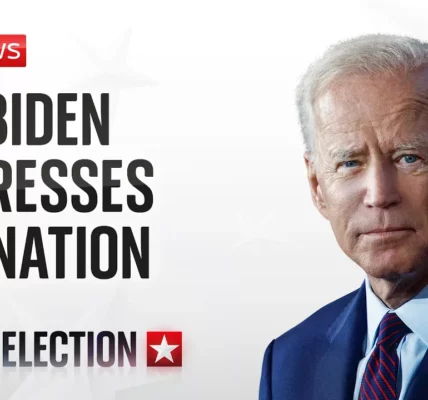The World with Yalda Hakeim: Netanyahu Under Pressure Amid Hostage Crisis

In this in-depth analysis, we explore the escalating political tensions in Israel, the ongoing hostage crisis involving Hamas, and the implications of Benjamin Netanyahu’s policies on national security and international relations.
Introduction
This week has witnessed a significant surge in protests across Israel, with citizens expressing their outrage over Prime Minister Benjamin Netanyahu’s handling of the hostage crisis involving Hamas. The situation has escalated following the tragic deaths of six Israeli hostages, leading to widespread demands for a reassessment of government policies. As protests grow in intensity, Netanyahu faces mounting pressure from both the public and international community to reconsider his approach to the ongoing conflict and the safety of hostages.
Benjamin Netanyahu’s Defense
In light of the recent protests and public outcry, Prime Minister Netanyahu has made rare public appearances to defend his policies. He insists that maintaining Israeli military presence along the Gaza-Egypt border is crucial for national security. During a press conference, he emphasized:
- His commitment to securing the release of hostages.
- The importance of preventing Hamas from rearming.
- His belief that any withdrawal from strategic positions could jeopardize Israeli security.
Netanyahu’s stance highlights a key tension within Israeli politics: the balance between military strategy and humanitarian considerations.
The Hostage Crisis
The hostage crisis has intensified with claims from families of the hostages that government policies are directly endangering lives. This section delves into the perspectives of various stakeholders:
Families of Hostages
Families have expressed their anguish and frustration, accusing the government of negligence and demanding accountability. They argue that:
- The government has failed to prioritize the safety of hostages.
- Communication from the government has been inadequate and often misleading.
- They seek immediate action to secure a ceasefire and negotiate the release of their loved ones.
Military and Political Leaders
Senior military officials and former politicians have voiced concerns regarding Netanyahu’s strategy. They emphasize:
- The need for a more transparent communication strategy with the public.
- The importance of establishing a ceasefire as a necessary step for securing hostages’ release.
- The risk of escalating violence if diplomatic efforts are not prioritized.
Ceasefire Negotiations and the Philadelphia Corridor
Central to the ongoing conflict is the issue of the Philadelphia Corridor, a strategic strip of land that serves as a gateway between Gaza and Egypt. This corridor has become a critical point of contention in ceasefire negotiations:
Significance of the Corridor
The Philadelphia Corridor has historically been used by Hamas to smuggle weapons and supplies. Netanyahu’s government maintains that:
- Withdrawing military forces from this area could allow Hamas to rearm.
- International pressure is insufficient to justify a military withdrawal.
- The strategic importance of the corridor necessitates a firm military presence.
International Reactions
The international community has reacted strongly to the situation, with notable criticisms coming from:
- The United States, with President Biden urging Israel to take a more proactive approach to securing hostages.
- European allies expressing concern over the humanitarian impact of the ongoing conflict.
The Humanitarian Impact
The humanitarian ramifications of the conflict are profound, with reports indicating significant civilian casualties on both sides:
Impact on Palestinians
Recent reports estimate that nearly 40,000 Palestinians have lost their lives since the escalation of hostilities, raising serious concerns regarding human rights:
- The need for accountability and protection of civilians in conflict zones.
- The role of international organizations in providing aid and support to affected populations.
Public Sentiment in Israel
Within Israel, public sentiment is divided. Many citizens are calling for:
- Greater transparency from the government regarding military actions.
- A balanced approach that considers both national security and humanitarian needs.
- Active diplomatic engagement to resolve the crisis.
Conclusion
The situation in Israel remains tense, with significant challenges ahead for Prime Minister Netanyahu. The mounting pressure from both the public and international community calls for a reevaluation of current policies regarding the hostage crisis and the ongoing conflict with Hamas. As protests continue and families demand action, it is crucial for the Israeli government to prioritize dialogue and diplomatic solutions to ensure the safety of hostages and the broader population. For those following the developments in this complex situation, staying informed and advocating for peaceful resolutions remains essential.
Call to Action: For more insights on the Middle East conflict, explore our articles on related topics.
“`




